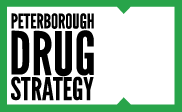Cannabis
Health & Harm ReductionCannabis is legal, but there are health risks.
If you choose to use cannabis, make sure you understand the risks and what you can to do stay safe.
Buying
Get your stuff from a source you can trust. Illegally sourced cannabis can contain mold, harmful pesticides, or synthetics that have been banned and therefore aren’t found in legally sold cannabis products.
Driving
Cannabis use impairs your ability to drive a car or operate other machinery. Wait at least six hours or longer, especially in the case of edibles or if you are feeling the effects of cannabis in any way, before getting behind the wheel.
Edibles
When it comes to edibles, start low and go slow. It can take two to four hours to feel the full effects of edibles. The high associated with edibles can be different and stronger than what you may have experienced from smoking or vaping cannabis. Start with 10 mg or less of THC and wait to feel the full effects before consuming more. You cannot fatally overdose on cannabis but if you consume too much you can experience cannabis poisoning, some of the symptoms of which are increased heart rate and blood pressure, paranoia, shaking, and vomiting, which may result in hospitalization or cause fatal accidents.
Limits
Learn your limit and stick to it. Everyone has different limits with regards to cannabis strength, how much they can consume, and how often. Just because a specific strain, method, or strength may work for someone else doesn’t necessarily mean it will work for you. Learn and respect your limits when it comes to cannabis.
Lung Health
Smoking burnt cannabis can harm your lungs. Exploring non-smoking alternatives, such as extracts, topicals, and edibles, can be better for your lung health.
Some common myths about smoking cannabis are that inhaling deeply, holding your breath, or coughing can enhance the high you experience. While these practices won’t actually increase your high, they will be harder on your lungs and the rest of your body, so we would recommend avoiding them.
Mental Health
If you or someone in your family has a history of psychosis or substance use issues, research has shown that it’s best not to use cannabis at all, or at least wait until your twenties and use it less frequently than others. Understanding your family’s health history can help reduce potential risks.
Mixing
Alcohol
Mixing cannabis with alcohol can increase impairment exponentially and cause anxiety, nausea, vomiting, or fainting. Avoid mixing these two substances when possible.
Tobacco
Mixing cannabis and tobacco can increase the addictive properties of both substances and be harder on your lungs if you are smoking. Avoid mixing cannabis with tobacco when possible.
Other Substances
Cannabis can interact with a variety of substances and produce different, unpredictable effects. Avoid mixing cannabis with other substances to decrease your risk of health harms.
Medications
Cannabis can interact with your medications and affect your health. Talk to your health care provider about potential interactions and learn more here.
Older Adults
Thinking of using cannabis for the first time? Feel free to peruse the safety tips on this page and our other resources. Cannabis can have various adverse health effects and interact with medications. Make sure to talk to your health care provider about cannabis if you are curious to learn more.
Thinking of using cannabis again after a long period of abstaining? Keep in mind that today’s cannabis strains may be different or stronger than what you used in the past. Do your research, consider your limits, and speak with your health care provider.
Parenting
If you are a parent, using cannabis can affect how you interact with and respond to your child. If you use, make sure there is a non-intoxicated adult available to care for your child.
Be mindful that second-hand smoke can adversely affect your child’s health and avoid exposing them to it.
If you believe your child has consumed cannabis, call the Ontario Poison Centre at 1-800-268-9017 or seek immediate medical attention.
Pregnancy and Breastfeeding
We don’t know enough about how cannabis use affects people who are pregnant or breastfeeding, though research has shown that the chemicals from cannabis pass through the placenta and into breast milk and can pose potential health risks for you and your baby, so we would recommend being more cautious during these times.
Storing
Store your cannabis in locked, difficult to access areas that are out of reach of children and pets to prevent accidental consumption and cannabis poisoning.
Strength
Cannabis contains more than 100 chemicals called cannabinoids. THC (delta-9-tetrahydrocannabinol) is the main psychoactive chemical that produces the ‘high’ associated with cannabis. Another commonly referenced cannabinoid is CBD (cannabidiol). Unlike THC, CBD is not psychoactive, will not make you high, and is associated with the medicinal components of cannabis.
If you are new to cannabis, we would recommend starting with cannabis products that have less THC in them, or higher CBD to THC ratios. High levels of THC are more likely to cause negative effects, such as anxiety, a fast heart rate, or confusion.
Synthetics
Synthetic forms of cannabis, such as K2 or Spice, can be stronger and more dangerous than natural forms of cannabis. Using synthetics can result in severe consequences to your health. Avoid synthetics and purchase cannabis from sources you can trust.
Youth
Young people are particularly vulnerable to the risks associated with cannabis use because brain development isn’t complete until people reach their mid-20s.
Research in this area is ongoing, but it is generally accepted that adolescents who begin using cannabis before the age of 16 are at an increased risk of adverse physical and mental health outcomes.
If you are a young person, remember that you have choices. You can put off your first time use for as long as you want or limit your consumption habits.
